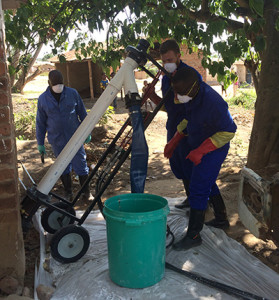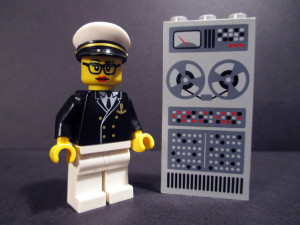Critical technology gaps in water, sanitation, and hygiene are being faced all over the world. According to UNICEF, 2.5 billion people—36 percent of the world’s population—don’t have access to a toilet. Due to this, many people in the developing world either practice open defecation or utilize pit latrines. In turn, this leads to a high risk of contracting diseases ranging from typhoid to hepatitis.
Tate Rogers, an engineering student from North Carolina State University, decided that something has to be done about this. In 2011, Rogers began developing a device that would help those in the developing world more safely deal with raw sewage.
It’s four years later, and the project is still under way—but it’s beginning to come to fruition.



